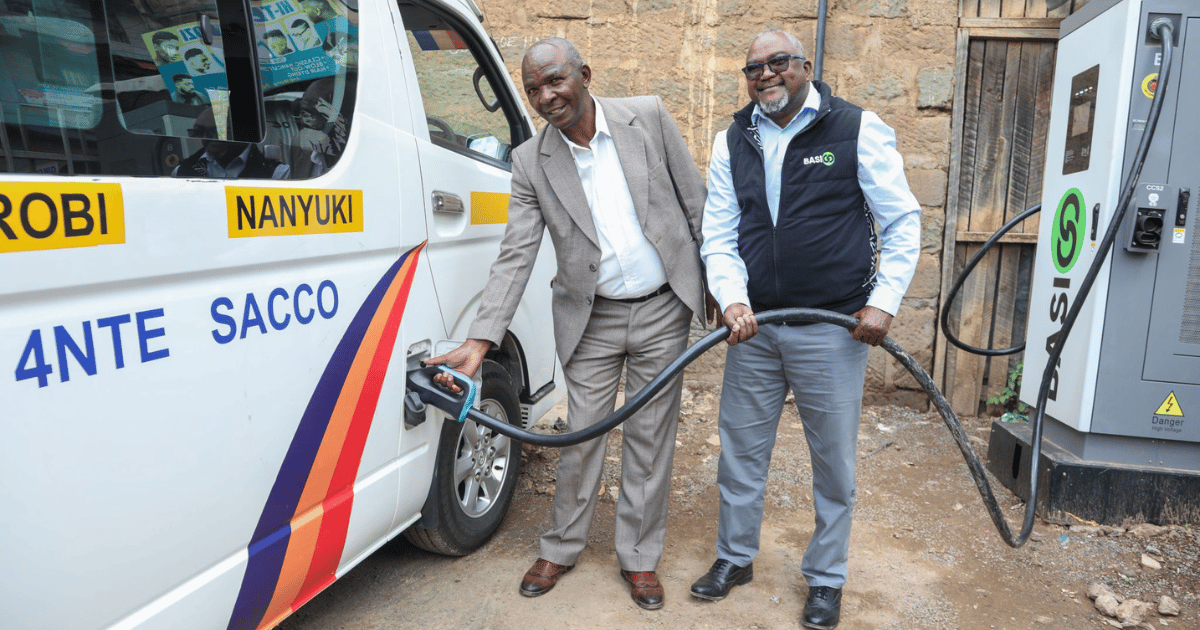- Renewables Rising
- Posts
- Inter-city van transport starts to go electric
Inter-city van transport starts to go electric

From the newsletter
Kenyan electric bus company BasiGo has launched its first inter-city electric mass transport pilot. In partnership with two bus operators, the company is testing 16- and 19-seater e-vans on two routes outside the capital Nairobi. The vans have a range of 300 km and can be fully charged in 1.5 hours. BasiGo has also installed DC fast chargers along the pilot routes.
Vans are the most common form of public transport across Africa. Cracking this market would give electrification a significant boost. Toyota fuel vans currently dominate in Kenya.
Electric vans are quicker and cheaper to assemble than EV buses, making them ideal for fast deployment. But they'll need to overcome concerns regarding vehicle prices, limited range and infrastructure.
More details
BasiGo’s Pay-As-You-Drive lease model, which allows owners to pay $0.1/km, will reduce the upfront cost for operators compared to traditional purchases or hire purchase agreements common with ICE vehicles. Individuals can acquire the vans at a lower initial investment, assign them to SACCOs, and earn returns through daily operations. This approach makes EV ownership more attainable and fits seamlessly into the existing structure of Kenya’s matatu industry.
4NTE SACCO will operate BasiGo electric vans on the Nyahururu–Nyeri (104 km) and Nyahururu–Nakuru (63 km) routes, while Manchester SACCO will run on the Thika–Nairobi (44 km) corridor. With a range of 300 km, the electric vans can comfortably complete multiple trips on these routes without requiring a recharge, making them ideal for short- to medium-distance inter-city transport.
BasiGo’s plan to assemble electric vans locally in Kenya underscores its long-term commitment to developing the domestic EV ecosystem. With a target to deploy over 1,000 units and provide comprehensive after-sales support, the company is directly addressing reliability and maintenance concerns.
Despite the complex and often cartel-like control of public transport in many African cities, the success of electric bus pilots in Nairobi shows that EVs can break through. BasiGo’s ability to secure over 500 orders from SACCOs is proof that even entrenched operators will adopt electric vans.
Although mass transport discussions often focus on large buses, minibuses or vans are the real workhorses of African cities. South Africa has approximately 350,000 minibus taxis and Kenya’s 100,000 minibuses. Electrifying them will take time, much like the gradual spread of electric motorcycles, but progress is visible: South Africa’s eKamva electric minibus taxi launch, Ethiopia’s deployment of 150+ locally assembled electric vans, and ongoing policy dialogues in Uganda and Rwanda all reflect growing momentum.
Countries like Ghana, Nigeria, Rwanda, and Uganda are well-positioned to adopt electric minibuses, especially since ICE 14-seaters dominate their urban transport systems. Many of these countries are already building charging infrastructure and exploring e-mobility policy frameworks, supported by active startups, regional dialogues, and international partnerships. With working EV business models emerging in Nairobi, Cape Town, and Addis Ababa, these nations have viable blueprints to follow and adapt.
Our take
A similar approach used to educate SACCOs on the benefits of electric buses should be applied to electric vans. By doing so their adoption could be quicker.
Electric vans can carry up to 19 passengers, compared to the traditional 14-seater ICE minibuses. With Nairobi often banning 14-seaters from the CBD due to congestion, higher-capacity electric vans could reduce vehicle numbers and ease pressure on city roads.
The demand for electric vans is growing steadily. In an interview with Dennis Wakaba, E-Mobility Consultant at BEV Advisory, he confirmed the interest, while Rideence Africa has reported a notable surge in orders for Joylong electric vans.